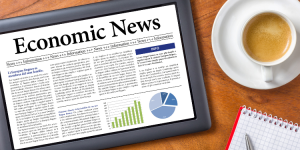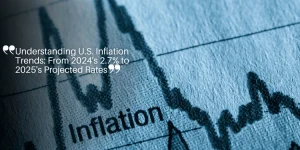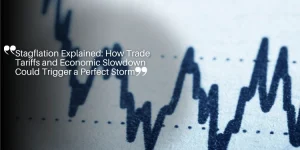Breaking news on economy and financial markets: what you need to know

Understanding the impact of global events and employing effective strategies for investors is crucial for navigating the economy and financial markets successfully.
Breaking news on economy and financial markets keeps you updated on critical shifts and trends. Have you ever wondered how these changes affect your investments? Let’s dive into today’s top insights and what they mean for you.
Current economic trends affecting financial markets
Recognizing the current economic trends that affect financial markets is essential for making informed investment decisions. Have you noticed how the economy impacts your daily finances? Factors such as inflation rates and unemployment figures can significantly shape market behavior.
Key Indicators to Watch
Several key economic indicators provide insight into market trends. Understanding these can help you navigate the complexities of finance:
- Gross Domestic Product (GDP): A high GDP indicates a thriving economy, which can boost market confidence.
- Unemployment Rates: Rising unemployment can suggest economic struggles, while low rates point to growth.
- Inflation Rates: Moderate inflation often correlates with a healthy economy, while excessive inflation can devalue investments.
As these indicators fluctuate, so do the markets. For instance, during periods of economic growth, stock prices generally rise as investor confidence increases. Conversely, during downturns, market volatility can lead to rapid shifts in stock values.
Global Events Impacting the Economy
Geopolitical events and shifts in global trade can also influence domestic markets. For example, changes in trade policies or international conflicts can cause market instability. Investors often react swiftly to news, leading to fluctuations in stock prices.
Additionally, technological advancements play a role in economic trends. As companies adopt new technology, efficiency can increase, impacting profit margins and, ultimately, stock performance. Monitoring how these trends unfold can provide valuable insights into potential investment opportunities.
Awareness of current economic trends allows investors to adapt their strategies, ensuring they are prepared for market changes. A well-informed approach can mitigate risks and uncover opportunities, paving the way for financial growth.
Impact of global events on local economies
The impact of global events on local economies is significant and often immediate. When major international events occur, they can ripple through markets and affect local businesses, consumers, and investors. Understanding these effects is crucial for anyone looking to navigate the financial landscape.
Types of Global Events
Several types of global events can influence local economies. These include:
- Political Changes: Elections, treaties, or conflicts can quickly alter trade relationships and economic conditions.
- Natural Disasters: Events such as earthquakes or hurricanes can disrupt supply chains and damage infrastructure.
- Economic Crises: A financial crisis in one part of the world can create uncertainty and panic, leading to reduced consumer spending.
When global markets are shaken, local businesses can experience decreased demand as consumer confidence wanes. This can lead to slowdowns in hiring and spending. Conversely, positive global events, such as trade agreements, can boost local economies by increasing market access.
Examples of Global Impact
For instance, the COVID-19 pandemic had profound impacts on local economies across the globe. Businesses shut down, and consumer behavior shifted dramatically. Many local economies faced downturns due to reduced travel and less spending. Understanding such trends gives insight into how quickly local conditions can change.
In addition, international trade policies can enhance or hinder local businesses. If tariffs are imposed on imports, local manufacturers might struggle to compete with foreign goods. Likewise, new trade agreements can open up markets, providing local companies with more opportunities.
Recognizing the impact of global events is essential for adapting business strategies. Investors and business owners must stay informed about worldwide developments to anticipate changes in local economic conditions.

Strategies for investors in changing climates
Understanding strategies for investors in changing climates is vital to safeguard investments. Markets can fluctuate wildly due to economic shifts, government regulations, and global events. Being prepared with effective strategies can help investors weather these changes.
Diversifying Your Portfolio
Diversification is one of the best strategies to manage risk. By spreading investments across various asset classes, you reduce the impact of poor performance in any single investment. Consider including:
- Stocks: They offer growth potential but come with risks.
- Bonds: These provide stable income and are generally less volatile.
- Real Estate: A tangible asset that often appreciates over time.
- Commodities: Investing in resources like gold can hedge against inflation.
These different assets can help stabilize your portfolio against market downturns. A well-balanced approach enables you to benefit from various economic conditions.
Staying Informed
Investors must remain aware of market trends and political developments. Researching news and economic reports can provide early warnings of shifts. Establishing a routine for monitoring financial news can keep you informed.
Furthermore, learning from past market trends can guide your decisions. For example, understanding how the market reacted during previous recessions can inform your current strategies. Strong analytical skills will allow you to adapt quickly to changes.
Investors should also consider consulting with financial advisors who understand the complexities of the markets. Their expertise can enable you to make informed choices that align with your financial goals.
As you develop your investment approach, consider the reality of changing climates. Anticipating shifts and planning accordingly will better position you for future success.
Future predictions for the economy and markets
Making future predictions for the economy and markets can be challenging, yet it is essential for investors and businesses alike. Understanding potential trends helps in preparing for what lies ahead and making informed decisions.
Key Economic Indicators to Monitor
To forecast future economic conditions, it’s important to keep an eye on various indicators. Some key factors include:
- Consumer Confidence: A higher confidence level suggests people are likely to spend more, boosting the economy.
- Unemployment Rates: Falling unemployment can signal economic growth, while rising rates may indicate trouble ahead.
- Inflation Rates: Moderate inflation can signal a healthy economy, while hyperinflation can be a red flag.
Watching these indicators closely allows investors to gauge the health of the economy and position themselves accordingly.
Influence of Technology and Innovation
Technology continues to reshape markets. Innovations can disrupt traditional industries or create opportunities in new sectors. For example, advancements in renewable energy are likely to shape the future of the energy market. As businesses and consumers shift towards sustainable options, those who invest early in such technologies may see substantial returns.
Globalization also plays a significant role in future market predictions. As economies become more interconnected, changes in one country can impact many others, affecting trade and investment flows. Keeping an eye on international relations and trade agreements is crucial for understanding potential impacts on local economies.
The adaptability of businesses will be a key factor. Companies that invest in training and technology can respond more quickly to changing market conditions and consumer demands. Being proactive rather than reactive can greatly enhance growth prospects.
Ultimately, making accurate future predictions requires ongoing research and analysis. Staying informed and flexible can help individuals and businesses not just survive but thrive in an unpredictable economic landscape.
FAQ – Frequently Asked Questions about the Economy and Financial Markets
What are key indicators to watch in the economy?
Key indicators include consumer confidence, unemployment rates, and inflation rates, which can signal the health of the economy.
How can I diversify my investment portfolio?
You can diversify by investing in a mix of assets such as stocks, bonds, real estate, and commodities to reduce risk.
What role does technology play in the financial markets?
Technology influences markets by creating new opportunities and disrupting traditional industries, impacting investment strategies.
Why is staying informed important for investors?
Staying informed helps investors anticipate market changes, allowing them to adjust their strategies and make wiser financial decisions.







